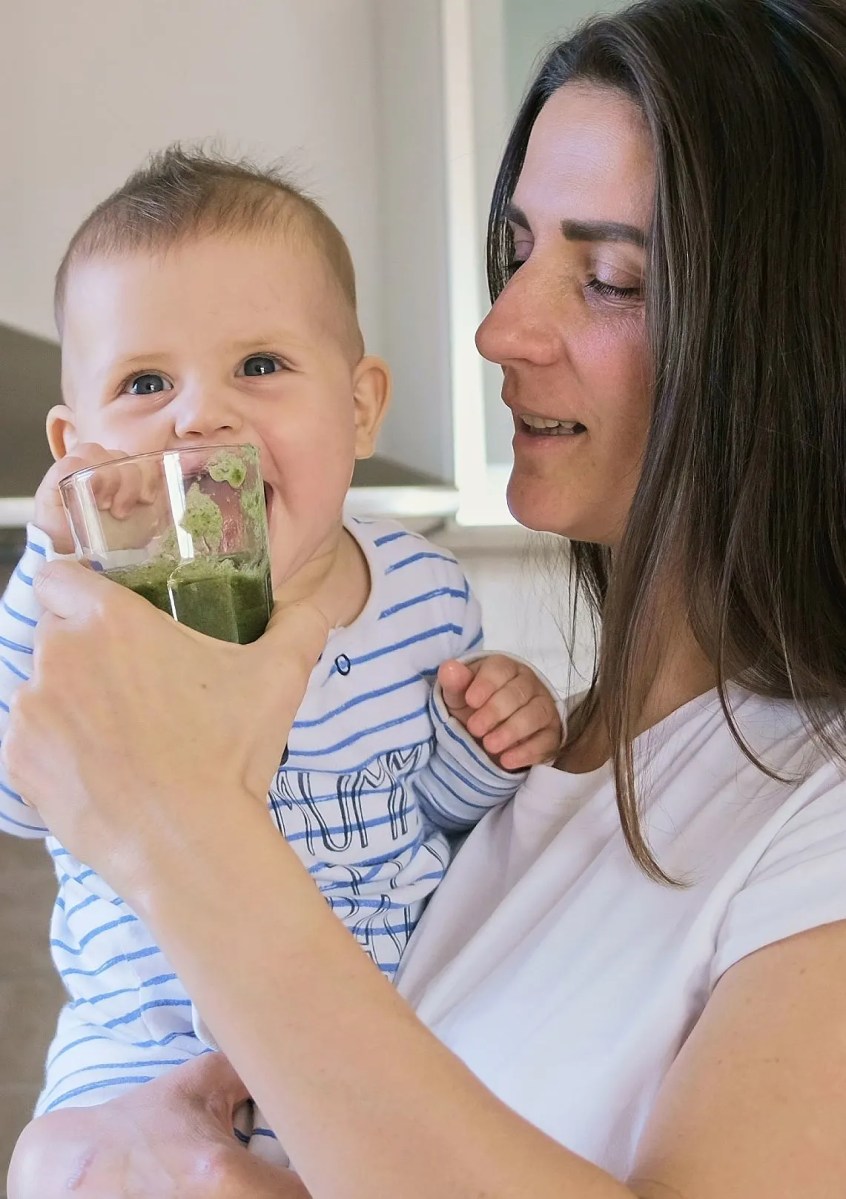Your cart is currently empty!
Key Nutrients to Support Your Baby’s Immunity

Nutrients play a critical role in your baby’s still-developing immune system. If you’re wondering what foods you should focus on, we’re breaking down what scientific articles tell us about babies and immunity.
Here’s What You Need To Know:
- Your baby’s immune system protects it from outside invaders, including viruses, bacteria, fungi, and toxins.
- A nutrient-dense diet, exercise, and adequate sleep are all required for a healthy immune system.
- Zinc, Selenium, Iron, Folate, Vitamin A, Vitamin C, and Vitamin E are all crucial for immune function.
- Yumi’s organic baby food is specifically designed to give your little one all the vitamins, minerals, and nutrients they need.
Your baby’s immune system protects it from outside invaders, including viruses, bacteria, fungi, and toxins. Their immune system is made up of two parts, the innate system and the adaptive system.
The innate system is what your baby is born with. It is the first responder that patrols your child’s body and reacts when it finds a foreign object. The cells (phagocytes) attack and subdue any bugs.
The adaptive system is built up through exposure. Antibodies are developed to protect your baby’s body from specific germs. The next time an invader comes around, the antibodies recognize and attack it.
A nutrient-dense diet is required for a healthy immune system. Below are the vitamins and minerals required to keep the bugs at bay.




- Zinc
Zinc is a key nutrient for the immune system. It is required to make proteins and DNA in the body. Your body can’t produce or store it, so you need to get it from food. A zinc deficiency is correlated with increased susceptibility to pneumonia and other infections among children and the elderly.
Children from 7 months to 3 years of age need about 3 mg per day.
Where to find it: beans, nuts, red meat, and oysters.
- Selenium
Selenium is a powerful antioxidant that supports immune and liver functions. It lowers inflammation by reducing oxidative stress. It also inhibits the replication of viruses.
Children 1 to 3 years of age should have about 20 micrograms per day.
Where to find it: grains, garlic, broccoli, nuts, especially Brazil nuts, walnuts, fish, and beef.
- Iron
Iron is essential for both the innate and adaptive immune systems. It activates and grows immune cells. Frequent infections are a symptom of iron deficiency.
From 7 to 12 months, babies are recommended to have 11mg of iron per day. From 1 to 3 years, the recommended daily amount is 7mg.
Where to find it: white beans, lentils, spinach (other dark leafy greens), and organ meats.
- Folate
Folate/Folic Acid keeps red blood cells healthy and supports red and white cell growth.
Babies 0–6 months old need 65 mcg each day. Babies 7–12 months old need 80 micrograms (mcg) each day. Children 1–3 years old need 150 micrograms (mcg) each day.
Where to find it: broccoli, brussels sprouts, cabbage, kale, chickpeas, and kidney beans.
Vitamin A
Beta carotene, which is converted to vitamin A in the body, helps regulate cellular immune responses. It has been shown to have anti-inflammatory properties.
Where to find it: carrots, apricot, mangoes, spinach, cantaloupe.
Vitamin C
Vitamin C supports cellular function, neutralizes free radicals, and keeps inflammation in check. It also helps with the absorption of iron.
Where to find it: oranges (or any citrus fruit), kiwis, bell peppers, and broccoli.
Vitamin E
Vitamin E is a powerful antioxidant. It’s also critical for the normal function of immune cells. T and B-cell functions are impaired when you don’t have enough vitamin E in your diet.
Where to find it: wheat germ oil, sunflower seeds, almonds, pine nuts, salmon, and kiwi.

My little one loves peanut butter – but they attend a nut-free school. What are some alternatives?
If your little one is old enough to attend daycare or preschool, odds are their school has a strict no-peanut rule. There are plenty of alternatives out there on the market. Wowbutter, Sunbutter, and Sneaky Chef No-Nut Butter are all good options.
Summary
If this feels overwhelming as a new parent, don’t worry. Yumi’s organic baby food is specifically designed to give your little one all the vitamins, minerals, and nutrients they need.
We even have milestone nutrition starter packs for babies 5 months and up.
Sources
- “Zinc.” Office of Dietary Supplements, 19 December 2019, https://ods.od.nih.gov/factsheets/Zinc-Consumer/
- Barnett, Junaidah B et al. “Low zinc status: a new risk factor for pneumonia in the elderly?.” Nutrition reviews vol. 68,1 (2010): 30-7. doi:10.1111/j.1753-4887.2009.00253.x
- Cherayil, Bobby J. “The role of iron in the immune response to bacterial infection.” Immunologic research vol. 50,1 (2011): 1-9. doi:10.1007/s12026-010-8199-1
- Sgarbanti, Rossella et al. “Intracellular redox state as target for anti-influenza therapy: are antioxidants always effective?.” Current topics in medicinal chemistry vol. 14,22 (2014): 2529-41. doi:10.2174/1568026614666141203125211
- “Iron needs of babies and children.” Paediatrics & child health vol. 12,4 (2007): 333-6. doi:10.1093/pch/12.4.333
- Hoffmann, Peter R, and Marla J Berry. “The influence of selenium on immune responses.” Molecular nutrition & food research vol. 52,11 (2008): 1273-80. doi:10.1002/mnfr.200700330
- Lee, Ga Young, and Sung Nim Han. “The Role of Vitamin E in Immunity.” Nutrients vol. 10,11 1614. 1 Nov. 2018, doi:10.3390/nu10111614










